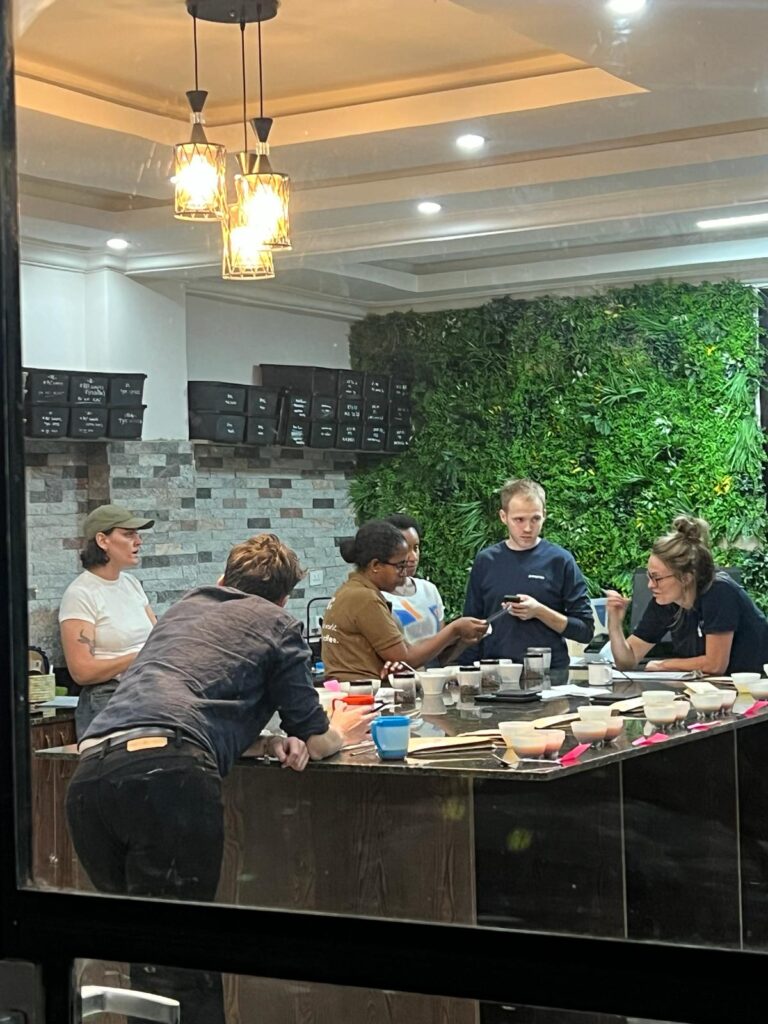Coffee Campus
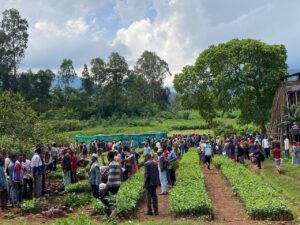
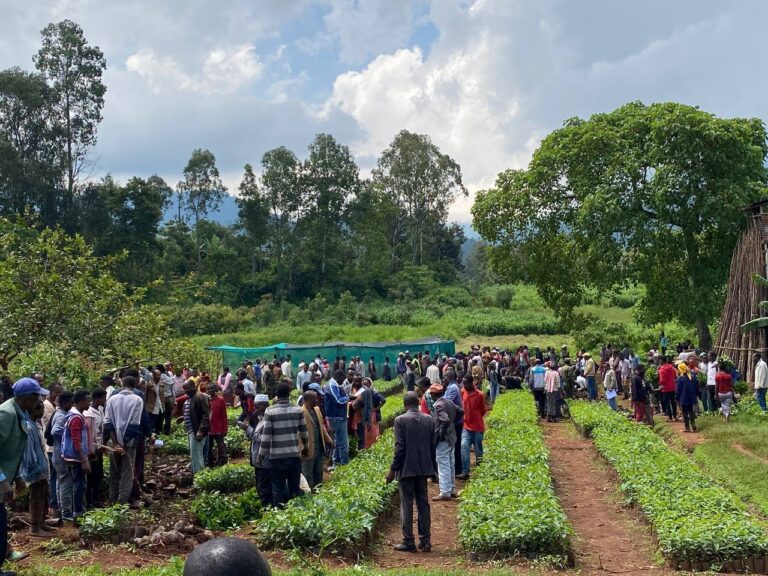
Why was there a need for our coffee campus?
We are active in an underactive developing country, a country which is heavily reliant on the production and export of coffee. Over 33% of Ethiopia’s GDP comes from the export of coffee, so the importance of this sector is undeniable, and yet, it is a sector that is very underdeveloped. 80% of the production comes from smallholders that own under 2 hectares and on average less than a hectare. It is difficult, if not impossible with this scale for people to produce enough to sustain their lives. Many of these people don’t earn a minimum income, let alone a living income; that is enough to educate their children, pay for healthcare or afford luxuries. For this reason smallholder farmers are hugely important to Bette Buna, we know that if we want to grow we need to grow with them. For that growth, the climate needs to be safe, attractive and encouraging, we need to help them and really, we need to help the industry as a whole to develop. It’s our duty to do something.
Another thing that is often lacking in farming communities is understanding of quality control, logistics, and knowledge of the market, i.e. understanding of the potential customer and their requirements. We educate people in these areas. The main goal of the campus is to improve the lives of smallholder farmers but also to develop the coffee sector in Ethiopia which is so important to grow the economy. It benefits Bette Buna to develop the coffee sector and work in a more mature industry but fundamentally our aim is to share opportunities that we’ve had and help others create opportunities for themselves.
The meaning of Bette Buna
Along with our farm we inherited values from our parents and grandparents, the name of the company
‘Bette Buna’ means ‘House of Coffee’, we are building a house, where everyone can find a home, a place where together we can develop in safety and happiness.
Model Farm
At our farm we train smallholder farmers in our community and surrounding communities in smart coffee agriculture. We train them in pre-harvest, how to keep the soil, prevent deforestation and restore the forest to beautiful agroforest. We also train people in improved standards for picking cherries and understanding the value in higher quality ripe cherries. Additionally there are social aspects to our work such as raising awareness of child labour and forced labour practices and building better understanding of discrimination.
On the farm in Teferi Kela at different parts of the year we organise farm training days, usually hosted by Mersha Syoum (Dawit’s father). Together with his team he trains community farmers in how they can improve the quality and the volume that they produce. This is important because it allows us to show results on our farm rather than just tell people what is best practice.
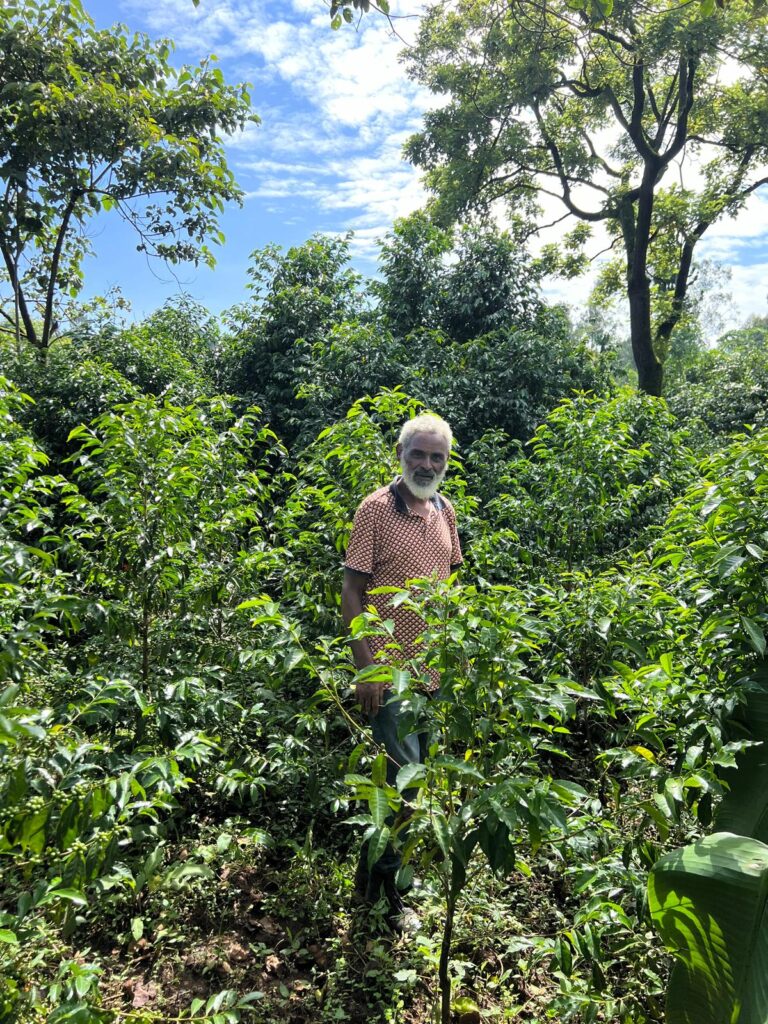
Model Mill
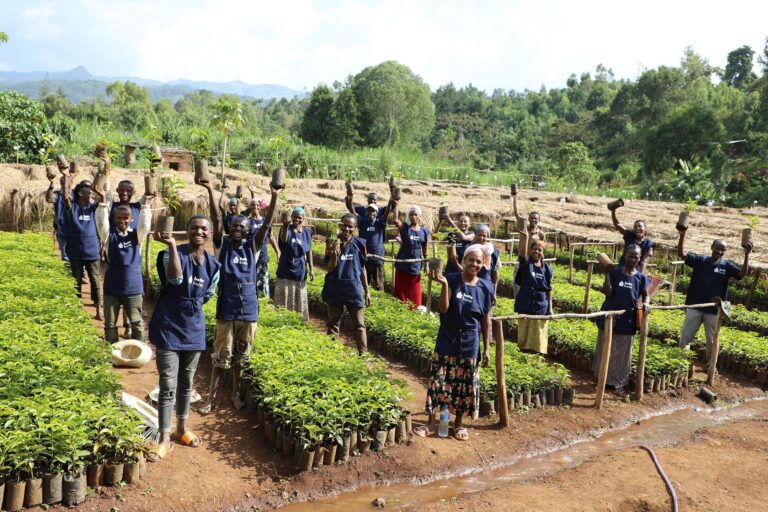
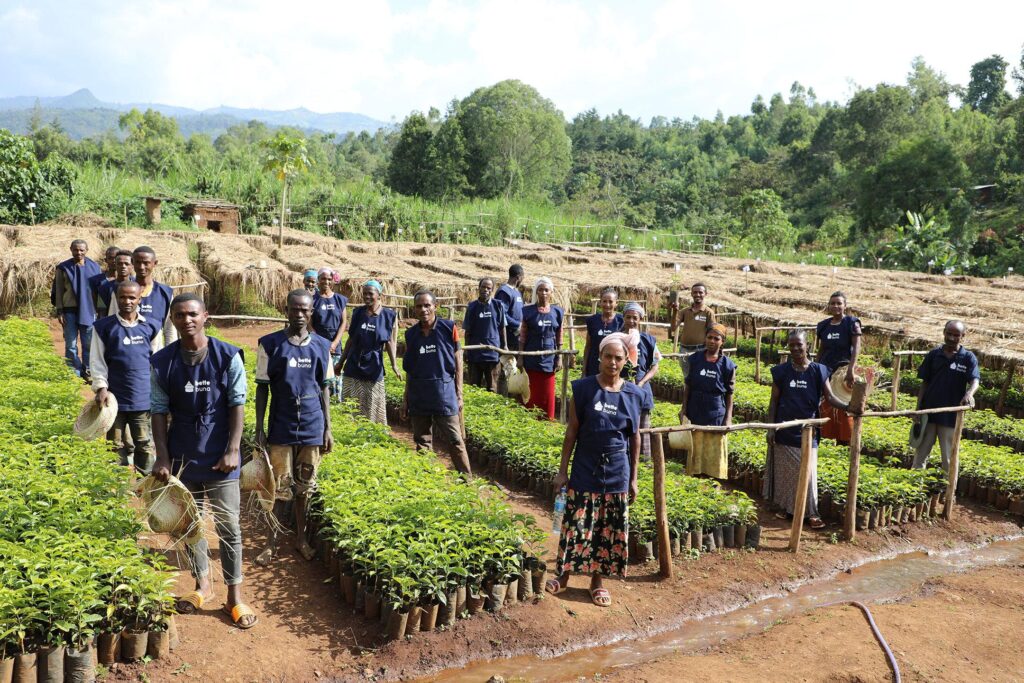
Coffee Nursery
On our nursery which is connected to our farm we facilitate things needed for farmers to take the first steps towards improving their situation. We grow over 350,000 seedlings per year, the majority of those seedlings are of course coffee but also some shade trees, avocados, papayas. Those seedlings are handed out for free to farmers that we’ve been working with and training.
Our nursery team consists of a lot of different people, and it’s a really lovely team. Among our nursery team are single mothers some of whom are the parents of children with disabilities. In Ethiopia even in the capital life isn’t easy for disabled people and their families as a lot of old fashioned attitudes around disability exist, in rural areas that stigma and lack of support is all the more pronounced. The women who work in our nursery are so driven to grasp the opportunities in front of them that they have been incredibly valuable team members and we hope to set a good example to the wider community of what people can achieve when they are given a chance.
There are a lot of neglected farms that have some coffee but a lot of Eucalyptus which grows quickly and can be sold for wood but is terrible as it absorbs so much water and also makes the soil very acidic. Our solution to this is alongside coffee seedlings we encourage farmers to plant maize which is a 1 year crop so gives a much quicker return than coffee which takes 2 or 3 years to reach maturity. The maize delivers proof of concept much more quickly than coffee, like coffee it requires looking after the soil, but the farmers will get results rather than having to trust in the process and teachings for multiple years without any return. So maize eases the transition towards the agroforestry systems we encourage for small holder farmers, so they can improve their living income and situation in general.
